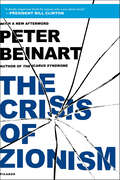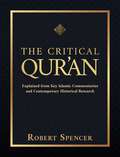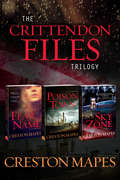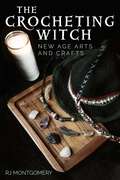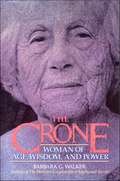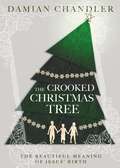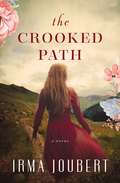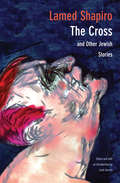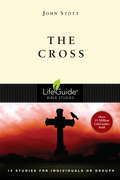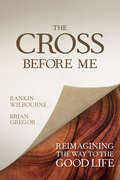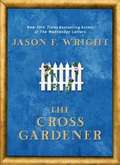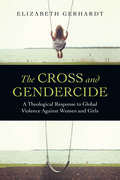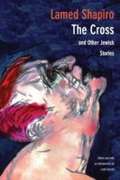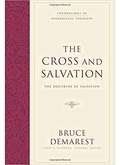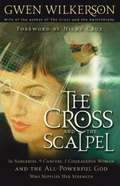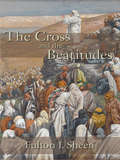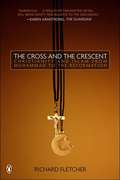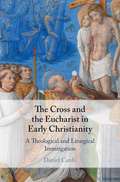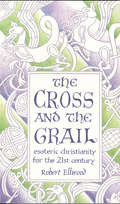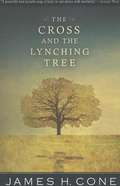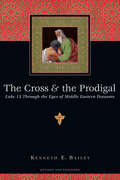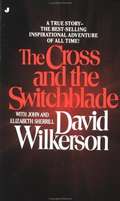- Table View
- List View
The Crisis of Zionism
by Peter BeinartIsrael's next great crisis may come not with the Palestinians or Iran but with young American JewsA dramatic shift is taking place in Israel and America. In Israel, the deepening occupation of the West Bank is putting Israeli democracy at risk. In the United States, the refusal of major Jewish organizations to defend democracy in the Jewish state is alienating many young liberal Jews from Zionism itself. In the next generation, the liberal Zionist dream—the dream of a state that safeguards the Jewish people and cherishes democratic ideals—may die.In The Crisis of Zionism, Peter Beinart lays out in chilling detail the looming danger to Israeli democracy and the American Jewish establishment's refusal to confront it. And he offers a fascinating, groundbreaking portrait of the two leaders at the center of the crisis: Barack Obama, America's first "Jewish president," a man steeped in the liberalism he learned from his many Jewish friends and mentors in Chicago; and Benjamin Netanyahu, the Israeli prime minister who considers liberalism the Jewish people's special curse. These two men embody fundamentally different visions not just of American and Israeli national interests but of the mission of the Jewish people itself.Beinart concludes with provocative proposals for how the relationship between American Jews and Israel must change, and with an eloquent and moving appeal for American Jews to defend the dream of a democratic Jewish state before it is too late.
The Cristero Rebellion
by Jean A. MeyerThe Cristero movement is an essential part of the Mexican Revolution. When in 1926 relations between Church and state, old enemies and old partners, eventually broke down, when the churches closed and the liturgy was suspended, Rome, Washington and Mexico, without ever losing their heads, embarked upon a long game of chess. These years were crucial, because they saw the setting up of the contemporary political system. The state established its omnipotence, supported by a bureaucratic apparatus and a strong privileged class. Just at the moment when the state thought that it was finally supreme, at the moment at which it decided to take control of the Church, the Cristero movement arose, a spontaneous mass movement, particularly of peasants, unique in its spread, its duration, and its popular character. For obvious reasons, the existing literature has both denied its reality and slandered it.
The Critical Journey Stages in the Life of Faith
by Janet O. Hagberg Robert A. GuelichThe spiritual journey is deceptively simple and at the same time highly complex. Our respect for this journey deepened as we wrote this book. Describing this paradox of spirituality is difficult, and can really only be "lived into.' This is why the journey is so profound. And that is why it is critical. It is life itself. The Critical Journey is, at its core, a description of the individual's spiritual journey; our response to or faith in God with the resulting life changes.
The Critical Qur'an: Explained from Key Islamic Commentaries and Contemporary Historical Research
by Robert SpencerA unique resource for understanding the Islamic Holy Book.As Islamic terrorism becomes a distressingly common feature of life in North America and Europe, it has become increasingly important for non-Muslims to be aware of the ideology that animates and motivates jihad violence and Sharia oppression of women and others—an ideology that&’s rooted in Islam&’s holy book, the Qur&’an. English-speaking people, however, have found attempts to understand the Qur&’an and Islam impeded by unclear, densely worded translations and explanatory notes written by Islamic apologists attempting to conceal, rather than reveal, how Islamic jihadis use the texts and teachings of the Qur&’an to justify violence and supremacism, and to make recruits of peaceful Muslims. The Critical Qur&’an, in contrast, makes clear the passages that are used to incite violence. Historian and Islamic scholar Robert Spencer elucidates the Qur&’anic text with extensive references to the principal tafsir, or commentaries, that mainstream Muslims use today to understand the Qur&’an, showing how interpretations that sanction violence are unfortunately not outliers, but central in Islamic theology. The Critical Qur&’an is the Islamic counterpart to numerous critical and skeptical editions of the Bible that have appeared over the last century and more. It is the one edition of Islam&’s book that doesn&’t shy away from elucidating why the holy book of Islam is so frequently quoted and referred to with reverence by people who commit and/or justify acts of violence. It is a basic resource for everyone who wishes to understand the persistent phenomenon of Islamic terrorism, and the peculiar provenance of this most provocative book.
The Crittendon Files Trilogy
by Creston Mapes#1 FEAR HAS A NAME: It was more than a break-in. More than a stalking. It was personal. When a stalker targets his family, journalist Jack Crittendon must uncover who the person is and what his motives are--if he is to protect the ones he loves. It will lead Crittendon into a world of behind-closed-door secrets and faith gone awry, as does his investigation of a missing pastor, whose apparent suicide is more than it appears. Each move Crittendon makes weaves him tighter and tighter into a web of lies, greed, hypocrisy, sin, and danger. He believed he'd never give in to fear. But that was before. And holding on to his faith won't be easy. Nor will keeping his family safe, and ending the terror. Because that might require him to step over lines he never dared to cross.#2 POISON TOWN: People are sick and dying. Rumors are swirling. Some claim chemicals leaking from a manufacturing plant are causing the cancer that's crippling people on the poor side of Trenton City, Ohio. Yet nothing at the plant appears amiss. The problem remains a mystery until reporter Jack Crittendon's long-time mechanic falls ill and he investigates. Soon Jack becomes engulfed in a smokescreen of lies, setups, greed, and scandal. The deeper he digs, the more toxic the corruption he uncovers. As he faces off with the big-time players behind the scenes and tries to beat the clock before more people die, he realizes the chillingly unthinkable--he knows too much.#3 SKY ZONE: Jack and Pamela Crittendon have hit the breaking point. After months out of work as a reporter, Jack is playing Mr. Mom and working part-time at Festival Arena with his survivalist friend Brian Shakespeare. Meanwhile, Pamela has gone back to work full-time while eight months pregnant. Having her recently widowed mother on hand isn't making matters any easier. With financial pressures boiling, Jack reports for duty at a rally for controversial presidential candidate Martin Sterling where he expects a mindless night on the job. But when Homeland Security picks up intel about a potential terrorist threat, Jack and Shakespeare are thrust into a life-or-death battle to save their own lives--and the lives of thousands of innocent people.
The Crocheting Witch: New Age Arts and Crafts
by RJ MontgomeryA Craft and Crochet Book for New Age Readers, Wiccans, and Neopagans to Assist with Spells and Spell-Work Many students of New Age beliefs, from Wicca to Neopaganism, create items to assist with their work by managing energy and controlling spells. These homemade, hand-crafted materials have personal significance, beauty, and practical, useful effects. A quick reference for people specifically looking to incorporate crochet into their craft, The Crocheting Witch is a guide to using different types of stitch pattern, materials, herbal and essential-oil infusions, beads, and charms to create a variety of crocheted crafts: Wand casesTarot boxCandle cozyCrystal-storage amuletAnd many more!The Crocheting Witch teaches readers—from fans of New Age practices, to Wiccans, to Neopagans—to create items themselves to control energies and channel them for personal use.
The Crone: Woman of Age, Wisdom, and Power
by Barbara G. WalkerA probing account of the honored place of older women in ancient matriarchal societies restores to contemporary women an energizing symbol of self-value, power, and respect.
The Crooked Christmas Tree: The Beautiful Meaning Of Jesus' Birth
by Damian ChandlerIn this real-life Christmas fable, when a Dad decides to let his kids select the family Christmas tree, he gets an unexpected lesson about God's love.In this thoroughly contemporary holiday story, a father lets his children choose the family Christmas tree. To his surprise, the kids pick one that is crooked. As he tries one thing after another to make the tree look right, he rediscovers the power of God's love. He begins to understand Christmas in a new way, particularly when his family decorates their tree and crown it with a star, never even noticing the crookedness he spent hours in the garage struggling to hide. The tender and laugh-out-loud narrative of real-life relationships propels the reader through the most un-generic Christmas story. This upbeat and comedic treasure refreshes the Christmas message of love and faith.
The Crooked Path
by Irma JoubertFrom the bestselling author of The Girl From the Train, comes another compelling coming of age story of delayed love, loss, and reconciliation in WWII-era South Africa.Lettie has always felt different from and overshadowed by the women around her– this friend is richer, that friend is more beautiful, those friends are closer. Still, she doesn’t let this hold her back. She works hard to apply her mind, trying to compensate for her perceived lack of beauty with diligent academic work and a successful career as a doctor. She learns to treasure her friendships, but she still wonders if any man will ever return her interest.Marco’s experience in the second world war have robbed him of love and health. When winters in his native Italy prove dangerous to his health even after the war has ended, he moves to South Africa to be with his brother, husband to one of Lettie’s best friends. Marco is Lettie’s first patient, and their relationship grows as she aids him on the road back to restored health.In the company of beloved characters from The Child of the River, Marco and Lettie find a happiness that neither of them thought possible. With that joy comes pain and loss, but Lettie learns that life—while perhaps a crooked path—is always a journey worth taking.
The Cross
by Lamed Shapiro Leah GarrettLamed Shapiro (1878–1948) was the author of groundbreaking and controversial short stories, novellas, and essays. Himself a tragic figure, Shapiro led a life marked by frequent ocean crossings, alcoholism, and failed ventures, yet his writings are models of precision, psychological insight, and daring. Shapiro focuses intently on the nature of violence: the mob violence of pogroms committed against Jews; the traumatic aftereffects of rape, murder, and powerlessness; the murderous event that transforms the innocent child into witness and the rabbi’s son into agitator. Within a society on the move, Shapiro’s refugees from the shtetl and the traditional way of life are in desperate search of food, shelter, love, and things of beauty. Remarkably, and against all odds, they sometimes find what they are looking for. More often than not, the climax of their lives is an experience of ineffable terror. This collection also reveals Lamed Shapiro as an American master. His writings depict the Old World struggling with the New, extremes of human behavior combined with the pursuit of normal happiness. Through the perceptions of a remarkable gallery of men, women, children—of even animals and plants—Shapiro successfully reclaimed the lost world of the shtetl as he negotiated East Broadway and the Bronx, Union Square, and vaudeville. Both in his life and in his unforgettable writings, Lamed Shapiro personifies the struggle of a modern Jewish artist in search of an always elusive home.
The Cross (LifeGuide Bible Studies)
by John StottThe Cross of Christ®PDF download with a single-user license; available from InterVarsity Press and other resellers.
The Cross Before Me: Reimagining the Way to the Good Life
by Brian Gregor Rankin WilbourneIn The Cross Before Me, award-winning author Rankin Wilbourne and co-author Brian Gregor offer a provocative perspective on why the cross is God’s wisdom about the way to a good and beautiful life. Drawing on biblical truths, historical writings, and modern examples they ask, “What does the cross have to tell us about the art of living a fully human life? What if the things we’re most afraid of are the pathway to freedom? What if the way of humility and suffering gives us peace in a way our successes never could?” The Cross Before Me is for anyone who wonders what the shape of Jesus’ life has to teach us about finding the life Jesus promises. This unique book helps readers reimagine the good life as they learn to delight in releasing power and embracing the cross as the only path to human flourishing.
The Cross Gardener
by Jason F. WrightJohn Bevan finally found the loving family he lacked as an orphaned child. Then a fatal car accident steals away all he loves most. John erects two small crosses at the scene of the accident. One day, he meets a young man who is touching up the crosses with white paint-a man he knows only as The Cross Gardener. Their conversations and travels transform John's life, because The Cross Gardener's knowledge is heaven-sent...
The Cross and Gendercide: A Theological Response to Global Violence Against Women and Girls
by Elizabeth GerhardtViolence against women and girls is a human rights epidemic that affects millions of lives around the world. While many Christians are addressing this crisis through education, advocacy and philanthropic support, there has been a reluctance to name gendercide as a theological and confessional issue, a matter that strikes at the very essence of the Christian faith. In The Cross and Gendercide, Elizabeth Gerhardt draws on Luther's "theology of the cross" to provide a theological basis for naming and responding to the grave sin of global gendercide. She lifts up the work and witness of Dietrich Bonhoeffer as an especially powerful resource for mobilizing the church today toward political action and social engagement. From the perspective of Christ's cross, the church must raise a prophetic voice against systemic violence and speak up for the myriad women and girls who are invisible and voiceless in the world today.
The Cross and Other Jewish Stories
by Lamed Shapiro Leah GarrettLamed Shapiro (1878-1948) was the author of groundbreaking and controversial short stories, novellas, and essays. Himself a tragic figure, Shapiro led a life marked by frequent ocean crossings, alcoholism, and failed ventures, yet his writings are models of precision, psychological insight, and daring. Shapiro focuses intently on the nature of violence: the mob violence of pogroms committed against Jews; the traumatic aftereffects of rape, murder, and powerlessness; the murderous event that transforms the innocent child into witness and the rabbi's son into agitator. Within a society on the move, Shapiro's refugees from the shtetl and the traditional way of life are in desperate search of food, shelter, love, and things of beauty. Remarkably, and against all odds, they sometimes find what they are looking for. More often than not, the climax of their lives is an experience of ineffable terror. This collection also reveals Lamed Shapiro as anAmericanmaster. His writings depict the Old World struggling with the New, extremes of human behavior combined with the pursuit of normal happiness. Through the perceptions of a remarkable gallery of men, women, children--of even animals and plants--Shapiro successfully reclaimed the lost world of the shtetl as he negotiated East Broadway and the Bronx, Union Square, and vaudeville. Both in his life and in his unforgettable writings, Lamed Shapiro personifies the struggle of a modern Jewish artist in search of an always elusive home.
The Cross and Salvation: The Doctrine of Salvation (Foundations f Evangelical Theology #Vol. 1)
by Bruce Demarest John S. FeinbergWith America's confidence in the Bible at an all-time low and the strength of her spiritual convictions waning, it is essential for Christians―especially Christian leaders―to be well-grounded in biblical theology. To have a clear and comprehensive understanding of the key doctrines of evangelicalism. <p><p> In response, professor and award-winning author Bruce Demarest has made plain God's glorious plan of salvation, his provision for the human dilemma through Christ's work on the cross, and the application of saving grace to unbelievers. Demarest's unique approach defines each topic, identifies its most pressing issues, examines the ways in which the doctrine has been understood historically, and interprets the Bible's revelation. The result is a clear and carefully constructed doctrinal statement that you can defend, live out, and communicate to others. <p><p> This singular, comprehensive treatment of one of Christianity's essential doctrines gives definitive, Bible-based answers about salvation and the cross―and about related theological issues such as grace and regeneration. It's perfect for clarifying your theology and gaining deep understanding of this foundational theme.
The Cross and The Scalpel: The Untold Story
by Gwen WilkersonAs her husband, David, grew in prominence in public ministry, Gwen Wilkerson found herself waging war with formidable enemies on the home front. Readers who have been inspired by David's bestselling book, The Cross and the Switchblade, will be touched by the inside story Gwen presents-her struggles with depression, the ravages of cancer, and marital strife. Gwen takes readers on a journey of faith as she discovers firsthand that the power of God can conquer pain, disease, and heartache. In this expanded version of an earlier book, she gives hope to anyone confronting a difficult passage in life. As a tool for women in crisis, as well as for pastors, intercessors, and church leaders, this book offers more than coping skills; it teaches by experience how to abide in God's strength and actually see miracles take place. With simplicity, candor, and vulnerability, Gwen shows readers how to use suffering as a springboard for spiritual growth. No situation is so hopeless, no relationship so lost that the answer cannot be found by trusting in God's strength.
The Cross and the Beatitudes
by Fulton J. SheenFulton J. Sheen was remarkable in his ability to uncover many layers of meaning in the life and words of Jesus of Nazareth. The Seven Beatitudes and The Seven Words from the Cross -- both were delivered from a mountain, but the connection runs deeper than that. As Bishop Sheen points out, Our Lord began His Public Life on the Mount of the Beatitudes and closed it on the Mount of Calvary. On the first He uttered the words central to His message; on the second He spoke to the deed central to His mission. Two avenues were thereby opened: one for spreading the Good News throughout the world, the other for reconciling all men to God through Christ. Fulton Sheen's profound meditations will slake the spiritual thirst of all who desire a fuller understanding of the Gospels and seek to draw closer to Christ.
The Cross and the Crescent: The Dramatic Story of the Earliest Encounters between Christians and Muslims
by Richard FletcherFletcher demonstrates that though there were fruitful trading and cultural interactions between Muslims and Christians during the period when the Arabs controlled most of the Mediterranean world, each group viewed the other's religion from the beginning as fundamentally different and suspect.
The Cross and the Eucharist in Early Christianity: A Theological and Liturgical Investigation
by Daniel CardóThe Cross was present at the Eucharist in early Christianity as an idea, a gesture, and an object. Over time, these different actualizations of the quintessential symbol of Christianity have generated important questions about their meaning and function, among them: is the Eucharist a meal and/or a sacrifice? Can the sign of the Cross illuminate the absence of a Roman epiclesis? Is it pertinent -historically and theologically - to use an altar Cross? In this study, Daniel Cardó explores the relation between the Cross and the Eucharist. Offering a thorough and fresh reading of patristic and Roman liturgical texts, he identifies their emphases and common themes on the Cross and the Eucharist, and demonstrates their significance for the liturgical debates of recent decades.
The Cross and the Grail
by Robert EllwoodThe two symbols at the heart of Christian belief -- the Cross and the Grail -- represent the two faces of contemporary Christianity. The Cross is its outward face -- masculine, public, exalted. The Grail is its hidden or esoteric face -- magical, feminine, sought by many, but found only by those who are able to ask the right questions.In this inspiring and practical book, Robert Ellwood examines ways of making Christian belief vital and responsive to contemporary life, now and for the future. Drawing on the teachings of Theosophy and of the Liberal Catholic Church, as well as the themes and motifs of medieval romance, Ellwood shows Christian practice at its most profound to be a philosophical, meditative, and mystical path well in keeping with the Ancient Wisdom Tradition.
The Cross and the Grail
by Robert EllwoodThe two symbols at the heart of Christian belief -- the Cross and the Grail -- represent the two faces of contemporary Christianity. The Cross is its outward face -- masculine, public, exalted. The Grail is its hidden or esoteric face -- magical, feminine, sought by many, but found only by those who are able to ask the right questions. In this inspiring and practical book, Robert Ellwood examines ways of making Christian belief vital and responsive to contemporary life, now and for the future. Drawing on the teachings of Theosophy and of the Liberal Catholic Church, as well as the themes and motifs of medieval romance, Ellwood shows Christian practice at its most profound to be a philosophical, meditative, and mystical path well in keeping with the Ancient Wisdom Tradition.
The Cross and the Lynching Tree
by James H. ConeThe cross and the lynching tree are the two most emotionally charged symbols in the history of the African American community. In this powerful new work, theologian James H. Cone explores these symbols and their interconnection in the history and souls of black folk.
The Cross and the Prodigal: Luke 15 Through the Eyes of Middle Eastern Peasants
by Kenneth E. BaileyHonored in 2006 as a "Year's Best Book for Preachers" by Preaching magazine. Where is the cross in the parable of the prodigal son? For centuries, Muslims have called attention to the father's forgiveness in this parable in order to question the need for a Mediator between humanity and God. In The Cross the Prodigal, Kenneth E. Bailey--New Testament scholar and long-time missionary to the Middle East--undertakes to answer this question. Drawing on his extensive knowledge of both the New Testament and Middle Eastern culture, Bailey presents an interpretation of this parable from a Middle Eastern perspective and, in doing so, powerfully demonstrates its essentially Christian message. Here Bailey highlights the underlying tensions between law and love, servanthood and sonship, honor and forgiveness that grant this story such timeless spiritual and theological power.
The Cross and the Switchblade
by David Wilkerson John Sherrill Elizabeth SherillAn inspirational preacher comes to New York City to talk to the delinquent teens and change their lives.
